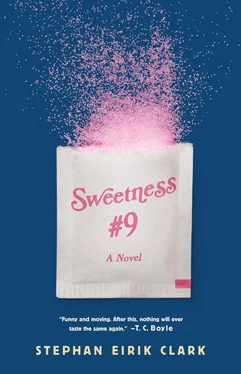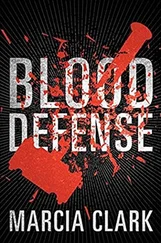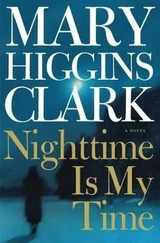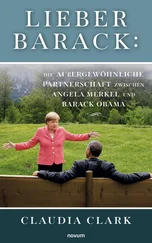“If the supermarket attacks hadn’t so thoroughly terrified the tri-state area”—they had concluded by now, but remained unsolved, much like the murders attributed to the Tylenol Killer—“I’m sure none of this would have happened. That it did while I was experiencing a sharp spike of anxiety as a result of a lawfully prescribed medication made this an even more unfortunate case of timing, as the pills certainly contributed to my acting so wholly out of character.”
The judge was a somber woman of sixty-five or more years; her face was all sharp angles and bone. I told her that I had already been punished enough. Not only would I have to carry with me the traumatic memory of witnessing my former co-worker’s death, but I would have to deal with the fall-out from the coverage of my arrest in both the Battle Station Bugler and the newsletter for the Society of Flavor Chemists.
“As a consequence of this, my reputation and that of my company has suffered terribly, and my daughter, no doubt embarrassed and ashamed of what I’ve done, has run away, fled without explanation, leaving me with a sadness I cannot begin to describe.”
I turned to those in the front row of the audience who had come to show their support for me. There was Ernest in the same ill-fitting dark suit he’d worn to his grandfather’s funeral; his uncle Peter, dressed in jeans and a flannel shirt; my glassy-eyed mentor, Ernst Eberhardt; Betty, in her best first lady outfit; and even my distant cousin from Lithuania, who had arrived just two days previous, looking remarkably like me, save for the red hair.
“In conclusion, I would like to add that I have not seen a dentist about my chipped tooth. In fact, I plan to keep it this way to serve as a reminder of the part I played in this unfortunate drama. I will, it should also be noted, not pursue any legal action — again, contrary to the advice of my attorney — against the city of Jupiter Park in response to how I was handled by Officer Landers, whose commitment to public service I commend.”
When it was time for the judge to speak, she addressed the facts of the case. She said it couldn’t be denied that my fingerprints had been found on the gun used by the deceased, and she acknowledged that I could therefore have shown the victim how to hold this weapon and where to place it. “As the state suggests, he could even have sat across from Charles Hithenbottom, using his own gun to force the victim to pull the trigger. But however much the state would like to see Mr. Leveraux prosecuted for the most serious charge against him, that of ‘depraved indifference,’ I wonder why the prosecuting attorney”—and here she looked squarely at him—“would believe this charge could be tried on the strength of conjecture alone. If Mr. Leveraux is a murderer”—and here her eyes swung toward mine—“he knows it in his heart. But I’m not certain anyone else can be led to believe such a thing beyond a reasonable doubt, especially given the fact that the victim appears to have lived, to put it kindly, a conflicted and troubled life.” If she didn’t reach for her gavel, it’s how I remember it now in my mind. “I’m dismissing all charges but two counts of vehicular hit-and-run.”
Though the judge’s ruling was a great relief, it was hardly cause for celebration. Nothing had been since Ernst Eberhardt had told us his story and Priscilla had run away in the night.
Instead of going out to dinner, we stopped at the supermarket on the way home as if it were just any other day. Peter grabbed the cart and moved through the store with precision and purpose, slowing only to direct Ernst, who puttered around behind him in a motorized Mart Cart. Betty lingered before the display of diet cola, refusing to cave in to her desires and grab a case for herself, while at the same time unwilling to turn her back and walk away.
“She blames me, doesn’t she?” she said.
“Who? Priscilla? Why?”
She spoke of her leaving so soon after she’d started medicating Ernest. “It’s just another bad mother storyline,” she said. “She must think I’m a monster.”
I wrapped my arm around her and led her off in search of our son and my cousin, the latter of whom I found shaking a box of crackers to see if it was filled with anything more than empty air. “There is no smell,” he said, with a wide-ranging look that took in all of the store’s bright abundance. “All this food,” he said, “and no smell!”
The way he smiled, I couldn’t tell if he was remarking on a feat of wonder or if he’d found the error in our ways.
When we got home, I ate a microwaveable shepherd’s pie alone in the kitchen and allowed myself a private hope where for so many years I had had none. As I pushed my fork through the top layer of cheese and mashed potatoes, just as I’d done countless times as a youth, I hoped my mother might rise up before me as clearly as a hologram when I breathed in the savory sauce of the beef. But my meal was stillborn; she remained as lost to me now as she had been since that terrible day in Texas.
I set my fork down and looked to the television in the living room. It was playing a documentary about the death of Princess Diana, and as a computer re-creation showed her black Mercedes entering the Pont d’Alma tunnel and slamming into the thirteenth concrete pillar, I started to cry, not so much because I’d never allowed myself a moment to grieve Lady Di’s passing, but because I could hear the same show playing on the television in the great room above (Betty’s brother and my cousin), as well as from my bedroom (Betty) and the study down the hall (Ernst).
I picked at my food, wondering if Ernest would remember Aspirina every time he ate a fried plantain or felt a burst of chili pepper. I feared I’d trigger memories in him only if he continued to eat frozen food — and only if that food remained profitable enough to stay on the market.
I went out into the garage before anyone could see me crying and sat at my workbench, where I put the finishing touches on the last diorama in my series on food history. I had started it after my release from jail. It showed our house from above, with the roof off and everyone — Betty, Priscilla, Ernest, and me — locked away in his or her own room, eating from a plate of food and watching television. This evening, I worked on the kitchen. This evening, I painted the microwave.
As he found he enjoyed caring for Ernst, Betty’s brother stayed on with us. His help was both appreciated and needed, because my mentor’s health quickly deteriorated. Ernst Eberhardt came down with pneumonia that same winter, and died in our home on 13 January 1999, after waking in the middle of the night with a piercing scream that caused me to jump from the chair next to his bed. He grabbed my hand and pulled me close with the strength of the look in his eyes. It was a mystical moment. My skin went electric. I felt so light and free. I thought he might reveal to me the secret of life. But his last words weren’t words at all. He only told me a name. “Magda!”
The weekend after the funeral, Ernest helped me clean out his namesake’s row house and discovered a stash of old pictures, including one black-and-white print of the young woman Ernst had loved before the war. In it, Magda sat on a large rock in a forest clearing, smiling at something the photographer had just said. Her name was written on the back and underlined in red, and below that was a block of text in German. I knew I had to have it translated. I felt as if it was this task that Ernst had meant to give me when he shot up in bed and attempted to share his final thoughts. So I took the photo to Koba, who was excited to say it was a recipe for Magda’s mother’s sauerkraut. “Should we give it a try?”
Our other big find at my mentor’s house was Ernst Eberhardt’s half-finished ghost-written memoir, How Great Thou Taste, which I discovered in his closet along with a case of old packets of Sweetness #9, their contents as pink as those packets I’d received anonymously while Ernst was still living in this house. I read his book in a single sitting. I kept thinking I’d come upon a chapter describing the reason he’d kept quiet about Geschmack Drei, or a passage telling me why he would use Sweetness #9 after realizing it had its origins in Hitler’s war machine. But his was a corporate memoir, containing as many abridged stories as it had missing parts. If anything, reading it left me with more questions, not fewer. Did he spend his final years ingesting Sweetness #9 out of guilt, as a kind of slow suicide? Or was he conducting an experiment on himself to see if The Nine’s threat was true? For some it takes a lifetime of use; for others it’s over with that first taste. I like to think the packets of Sweetness #9 that he delivered to me were his way of announcing the results — that even in his declining state he had tried to let me know why he was slipping, or at the very least to direct my thinking toward it. But everything is conjecture. I can speak no more certainly of this than I can, in the end, of the verifiable effects of Sweetness #9.
Читать дальше












